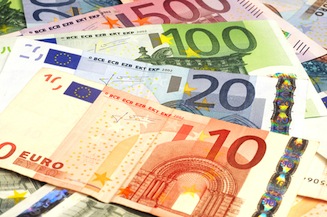Prof. Hassan Oaikhenan of the Department of Economics and Statistics, University of Benin, said the foreign exchange environment would likely witness some favourable effects in 2018.
Oaikhenan made the projection in an interview with the News Agency of Nigeria (NAN) in Awka on Thursday.
He predicted that there would be massive inflow of foreign exchange into the country as politicians would need them to fund their electioneering campaigns ahead of 2019 general polls.
Oaikhenan, however, said the inflationary trend might continue in view of the increased liquidity or excess cash in circulation.
“As we approach 2019, we expect that a lot of money will be released into the system on account of political activities that year; that has potential implications for the economy.
“We are likely to see the repatriation of foreign exchange that has been kept away by some of these politicians, that is also likely to have a favourable effect on the naira.
“It means that naira will experience slight appreciation.
“There will be so much liquidity as a result of financing the election in the succeeding year, so inflation would persist,“he said.
Oaikhenan decried the poor performance of the energy sector in outgoing year.
He said the economic outlook for the coming year would remain bleak if urgent steps were not taken to address the challenges in the power sector.
According to him, the power sector has held the industrial sector down.
He said that there was serious disconnect between the principles of the 2017 budget and its implementation.
The don called for full liberalisation of the energy sector to encourage competitiveness and allow more investors to come in.
According to him, current activities of power generating and distribution companies have not justified the privatisation policy.
“The outlook is generally bleak; it is not particularly promising, especially from the backdrop of the fact that not much is achieved in the outgoing year.
“Events in the energy sector are pivotal to the national economy, so it does not call for so much optimism.
“I will score the implementation of the 2017 budget low, the evidences are there; infrastructure development is particularly not impressive, it is not hard for us to see that the roads are in bad shape.
“The energy sector did not fare well, power outage characterised the system and that adversely affected the industrial sector negatively with high running cost.
“As a result poor performance of the energy sector, the contribution of the industrial sector to the Gross Domestic Products (GDP) did not go beyond 20 per cent which it had hovered over time,“he said.
He said that power generation had reached an irritating dimension where it appeared that there are no quick fix approaches to it.
“The system as it is configured now cannot generate electricity to satisfy the need of the industrial sector and the entire economy.
“There is a disconnect between the budget as proposed and the implementation proper that brings the question of how religious the government follows its budgets in a bid to trigger economic development.”
He called on President Muhammadu Buhari to consider reshuffling his cabinet and look beyond his party for experts that could provide answer to some of the national economic questions.
